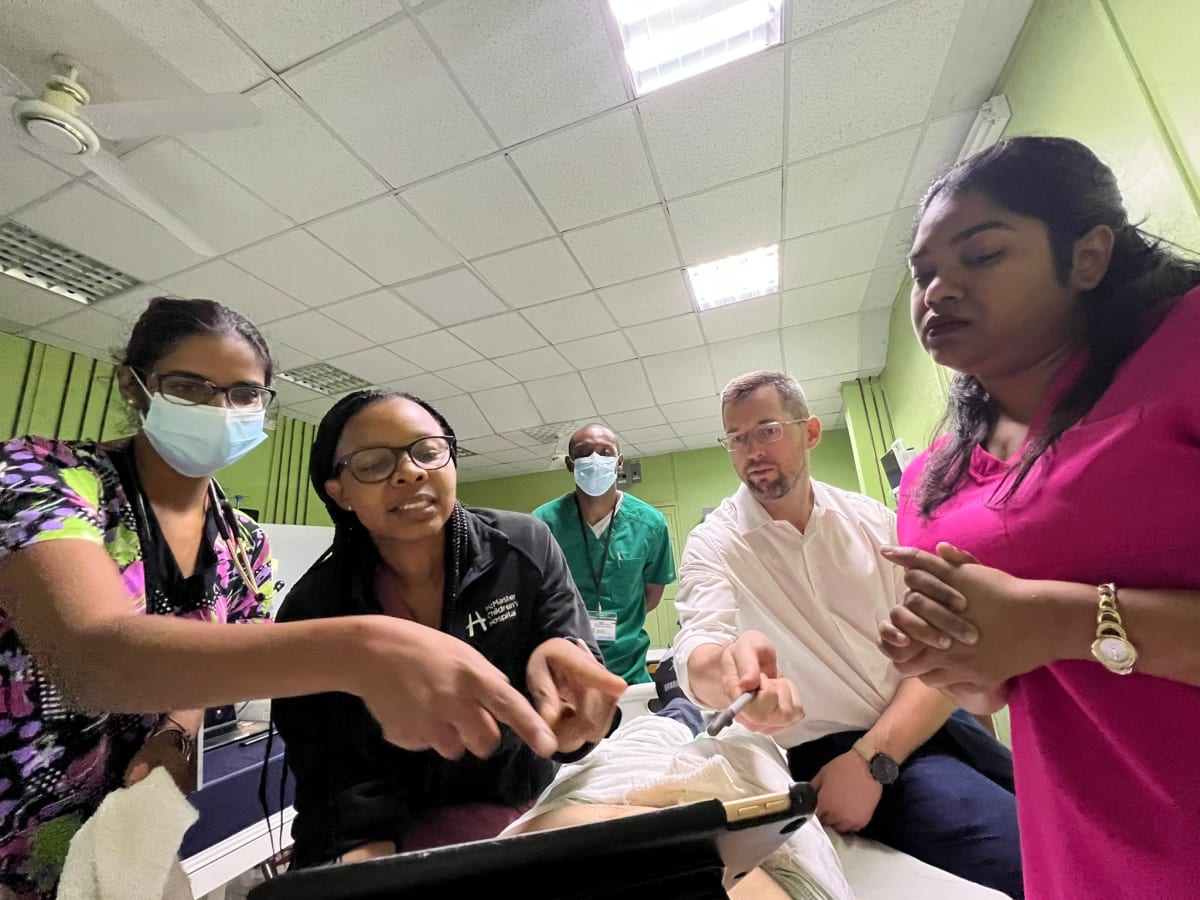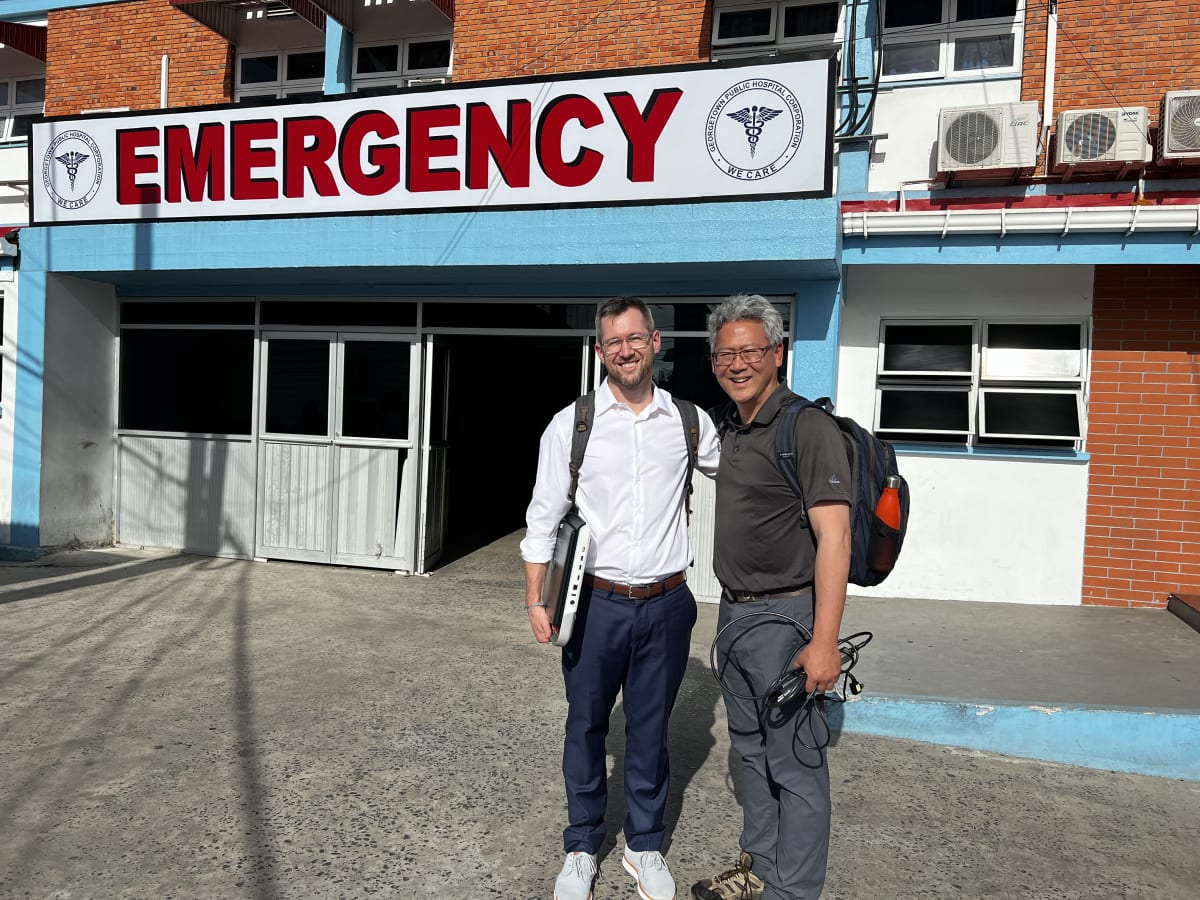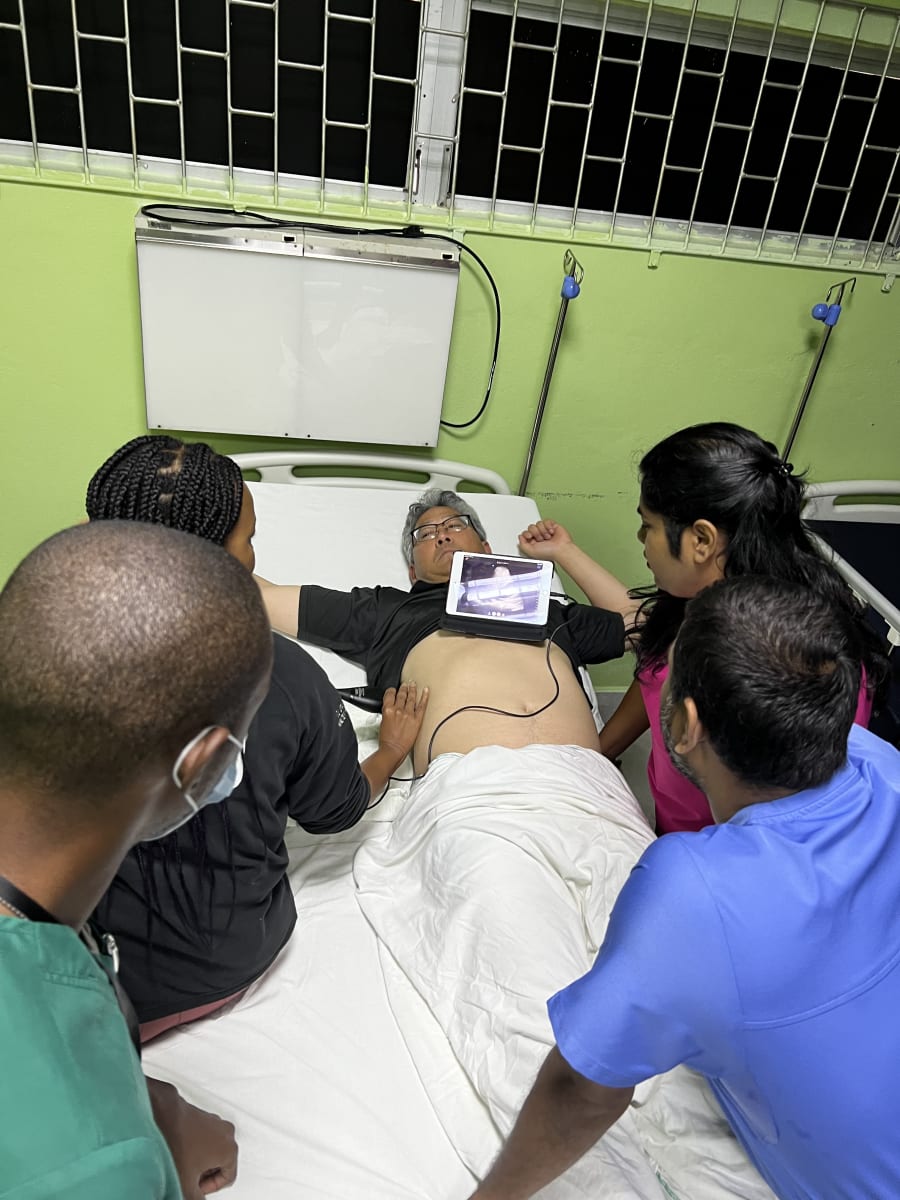We will train pediatric critical care physicians at Georgetown Public Hospital Corporation (GPHC) in Guyana in the core applications of point of care ultrasound. We will initially do a POCUS “boot camp” where we go over the basics of ultrasound, obtaining and interpreting the images. We will follow this with live patient scans in the hospital, both inpatient and in the emergency department. This project will establish POCUS as an additional skill physicians in Guyana can use to better serve their patients.
Our goal is to train physicians to a level of proficiency where they will be able to instruct beginners in POCUS. This “train the trainer” approach is shown to improve health care professional knowledge retention, especially when used in conjunction with traditional methods including didactics and in-person direct instruction from topic experts (Pearce, 2012).
The core POCUS applications reflect a needs assessment with the Pediatrics department of GPHC as well as the American College of Emergency Physicians guidelines: cardiac, lung, abdominal, US guided procedures, Focused Abdominal Sonography in Trauma (FAST) and soft tissue. Initial training will consist of asynchronous online didactics prior to this trip through the Global Ultrasound Institute (GUSI). Asynchronous because the online modules are available for all participants to complete when they are able. This will obviate the challenge of coordinating multiple free time blocks for four physicians with ongoing clinical responsibilities. Ongoing instruction will also occur in the form of monthly tape review sessions with images obtained by the enrolled physicians. We will give periodic real-time feedback - the Butterfly ultrasound probe selected for this study has the added benefit of allowing live review where the scanner is able to stream the images online to remote observers.
Pediatric patients ages birth to 13 years old at GPHC will benefit from this project through expedited imaging and thus more rapid diagnosis and ideally treatment. This population is chosen because it is the same age we are trained on in the united states so the skills we have as POCUS providers are directly transferable. As in high income countries, POCUS allows the providing physician or a member of the team to directly obtain and interpret images, both for diagnostics as in the case of pneumonia or decreased cardiac function, or for ultrasound guided procedures such as central venous access.
The patients are the final beneficiaries, but the physicians providing this care also benefit from an additional skill and increased knowledge base. Furthermore, our goal through this longitudinal study is to train physicians to a level of proficiency where they will be able to instruct beginners in POCUS. In Guyana, the capital city of Georgetown and GPHC as the principal pediatric provider, have access to resources not always available in the country. Ideally one day the providers we train will be able to disseminate their knowledge to the more remote providers.
This project is planned to be longitudinal with continued remote instruction after the initial training. We will provide this initial hands on training to establish a baseline skill level, then continue regular remote instruction over the course of a year. Learners will also retain access to the online GUSI didactics to review details of normal scans and pathologies.
We plan to have monthly film review sessions to go over scans done by the trainees and give feedback on their images, diagnosis, and treatment. We will have POCUS credentialed faculty in the US reviewing all images for quality assurance. If possible, we will also return to Guyana for additional hands on training at four and eight months after the initial instruction.
We will track physician comfort and skill with POCUS through surveys and grading scans. The goal is for each physician to obtain 25 scans in each core competency and have a >80% passing grade on their scans as judged by expert POCUS faculty. This is consistent with US standards based on the American College of Emergency Physicians.














Had an incredible first trip to Guyana! Met some of the doctors down there who are doing an amazing job taking care of kids from all over Guyana, not just Georgetown.
We spent the first few days doing core instruction in Holly. Ultrasound works, how to set themselves up, before advancing to the core applications. They took to it like fish to water (in no small part because Dr. David Teng is an excellent instructor.) He was only able to stay for a few days, but really got the ball rolling.
After he left, I finished the core topics, things like the abdomen and kidney ultrasounds. We also spent time on the wards practicing ultrasounds on real patients.
I think the highlight for me was that one of the doctors identified a pericardial effusion only days after learning how to do the cardiac ultrasound. She assisted the CT surgeon who placed a pericardial drain by performing a pocus study before, during, and after the drain was placed to ensure the fluid collection was going down in size.
The trip was wonderful and got this project off to a great start. Next up is continuing virtual instruction to keep growing their skills. We are all hopeful that as their skills improve they’ll get to a point where they can teach residents who then take those ultrasound skills outside of the capital to even more resource limited areas. Cannot wait to go back in a few months to continue this critical work!